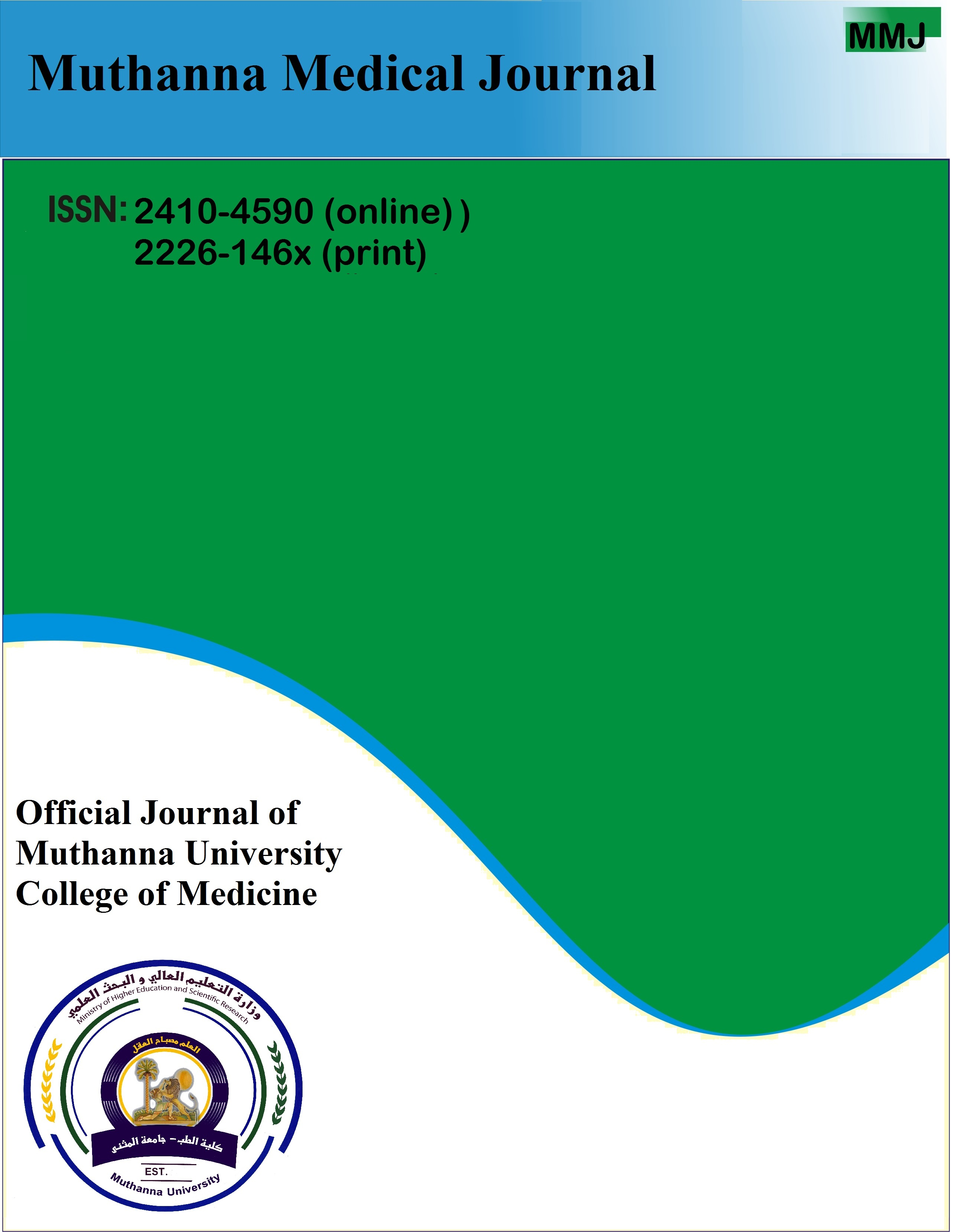Muthanna Medical Journal
Tahreer Rehab Abd_Almunaim ¹, Ruqaya Subhi Tawfeeq *
Received 22 March 2023; revised 01 May 2023; accepted 24 May 2023, available online 08 June 2023.
Abstract
High fertility rates in underdeveloped nations are connected to poverty and shorter lifespans, which creates economic and social problems. Contraception improves women's and children's health via family planning and fertility control. The aim of the study is to assess the Association between sociodemographic characteristics and contraception use in Al-Karkh district of Baghdad city. This study in Al-Karkh district of Baghdad, Iraq, used a descriptive cross-sectional design to examine contraceptive use among married women of childbearing age attending primary health care centers. Conducted between September 2022 and February 2023, the study employed a multistage cluster sampling technique and a questionnaire adapted from a 2012 study. Data were collected through self-administered questionnaires, maintaining participant anonymity. The study included 500 married women in the Baghdad Al-Karkh district, analyzing their age, husband's age, education, and contraceptive use. The majority (60.6%) used contraceptive methods for family planning. A significant association was found between contraceptive use and participants' education level, marriage duration, and employment status. The number of pregnancies, the interval between deliveries, and the number of children also significantly correlated with contraceptive use. In conclusion, The study highlights the impact of socio-demographic factors on family planning and contraceptive use. Context-specific interventions addressing age, residency, education, and employment status disparities are necessary to improve contraceptive access, and reproductive health outcomes, and support informed family planning decisions, ultimately enhancing maternal and child health.
Keywords: Association, Sociodemographic, Characteristics, Contraception, Al-Karkh district, Baghdad city